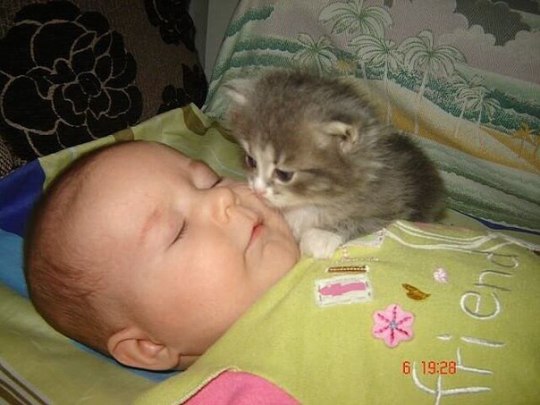Aware | she/they | early 20s | space nerd extraordinaire™ | trekkie
Don't wanna be here? Send us removal request.
Text
I just misread "a house divided against itself cannot stand" as "a horse divided against itself cannot stand" and I didn't even question it. Well yeah. That horse is in serious trouble.
1 note
·
View note
Text
This is a neutral post

Feel free to stop here and rest before journeying to the posts below.
380K notes
·
View notes
Text
kids these days don’t know how lethal stagnant water is
51K notes
·
View notes
Text
i hate it when i cant even write a poem about something because its too obvious. like in the airbnb i was at i guess it used to be a kids room cause you could see the imprint of one little glow in the dark star that had been missed and painted over in landlord white. like that's a poem already what's the point
356K notes
·
View notes
Text
The more I see the phrase “eldest daughter syndrome” the higher it raises my hackles. It’s just parentification. It’s parentification and if you call it parentification it’s a lot easier to explain, and it’s a lot easier for the younger siblings or only children and children of any gender to identify it happening to them too.
Like I get that oldest sibs are more likely to be treated as accessory parents of their youngers, and I get that in a lot of families girls are pushed into caregiver roles, but fucking hell man parentification can and does happen to any kid regardless of birth order and gender, and while situations vary from family to family, there isn’t really anything the parentified oldest daughters are experiencing that the other parentified kids aren’t.
38K notes
·
View notes
Text
directors using colorful or "impossible" lighting to convey mood and meaning and beauty my beloved. directors making night scenes impossible to see for the sake of realism my beloathed.
79K notes
·
View notes
Text
just got fired from my job reading erotic fiction for audiobooks because i kept pronouncing “penetrates” like it was a greek philosopher
50K notes
·
View notes
Text
asking as a 14 yr old currently Going Through It. no nuance (sorry if this is too sad for your blog)
It does get better. I promise - H :)
4K notes
·
View notes
Text
can someone please be proud of me like fuck I’m trying
2M notes
·
View notes
Text
shoutout to my best buddy in highschool who once told me "you speak like how tumblr users write their textposts" and i was mortified for a second but then realization hit me and i rebutted with "wait how do YOU know how tumblr users write their textposts???" and we were both like

36K notes
·
View notes
Text
"The first modern attempt at transferring a uterus from one human to another occurred at the turn of the millennium. But surgeons had to remove the organ, which had become necrotic, 99 days later. The first successful transplant was performed in 2011 — but even then, the recipient wasn’t immediately able to get pregnant and deliver a baby. It took three more years for the first person in the world with a transplanted uterus to give birth.
More than 70 such babies have been born globally in the decade since. “It’s a complete new world,” said Giuliano Testa, chief of abdominal transplant at Baylor University Medical Center.
Almost a third of those babies — 22 and counting — have been born in Dallas at Baylor. On Thursday, Testa and his team published a major cohort study in JAMA analyzing the results from the program’s first 20 patients. All women were of reproductive age and had no uterus (most having been born without one), but had at least one functioning ovary. Most of the uteri came from living donors, but two came from deceased donors.
Fourteen women had successful transplants, all of whom were able to have at least one baby.
“That success rate is extraordinary, and I want that to get out there,” said Liza Johannesson, the medical director of uterus transplants at Baylor, who works with Testa and co-authored the study. “We want this to be an option for all women out there that need it.”
Six patients had transplant failures, all within two weeks of the procedure. Part of the problem may have been a learning curve: The study initially included only 10 patients, and five of the six with failed transplants were in that first group. These were “technical” failures, Testa said, involving aspects of the surgery such as how surgeons connected the organ’s blood vessels, what material was used for sutures, and selecting a uterus that would work well in a transplant.
The team saw only one transplant fail in the second group of 10 people, the researchers said. All 20 transplants took place between September 2016 and August 2019.
Only one other cohort study has previously been published on uterus transplants, in 2022. A Swedish team, which included Johannesson before she moved to Baylor, performed seven successful transplants out of nine attempts. Six women, including the first transplant recipient to ever deliver a baby back in 2014, gave birth.
“It’s hard to extract data from that, because they were the first ones that did it,” Johannesson said. “This is the first time we can actually see the safety and efficacy of this procedure properly.”
So far, the signs are good: High success rates for transplants and live births, safe and healthy children so far, and early signs that immunosuppressants — typically given to transplant recipients so their bodies don’t reject the new organ — may not cause long-term harm, the researchers said. (The uterine transplants are removed after recipients no longer need them to deliver children.) And the Baylor team has figured out how to identify the right uterus for transfer: It should be from a donor who has had a baby before, is premenopausal, and, of course, who matches the blood type of the recipient, Testa said...
“They’ve really embraced the idea of practicing improvement as you go along, to understand how to make this safer or more effective. And that’s reflected in the results,” said Jessica Walter, an assistant professor of reproductive endocrinology and infertility at Northwestern University Feinberg School of Medicine, who co-authored an editorial on the research in JAMA...
Walter was a skeptic herself when she first learned about uterine transplants. The procedure seemed invasive and complicated. But she did her fellowship training at Penn Medicine, home to one of just four programs in the U.S. doing uterine transplants.
“The firsts — the first time the patient received a transplant, the first time she got her period after the transplant, the positive pregnancy test,” Walter said. “Immersing myself in the science, the patients, the practitioners, and researchers — it really changed my opinion that this is science, and this is an innovation like anything else.” ...
Many transgender women are hopeful that uterine transplants might someday be available for them, but it’s likely a far-off possibility. Scientists need to rewind and do animal studies on how a uterus might fare in a different “hormonal milieu” before doing any clinical trials of the procedure with trans people, Wagner said.
Among cisgender women, more long-term research is still needed on the donors, recipients, and the children they have, experts said.
“We want other centers to start up,” Johannesson said. “Our main goal is to publish all of our data, as much as we can.”"
-via Stat, August 16, 2024
16K notes
·
View notes
Text
God me and some friends are talking abt being dense af rn and i just remembered this one time i was shopping w my dad and i wanted to get rainbow shoelaces at the dr martins shop. And there was this punk girl, dyed hair face piercings rlly cute, behind the counter and like prince charming putting the shoe on cinderellas foot she offered to lace my gay shoelaces into my dr martins and i let her. “Wow what good customer service!”. And then in the car my DAD had to tell me that she was flirting with me a major L to gay people over the world
67K notes
·
View notes





